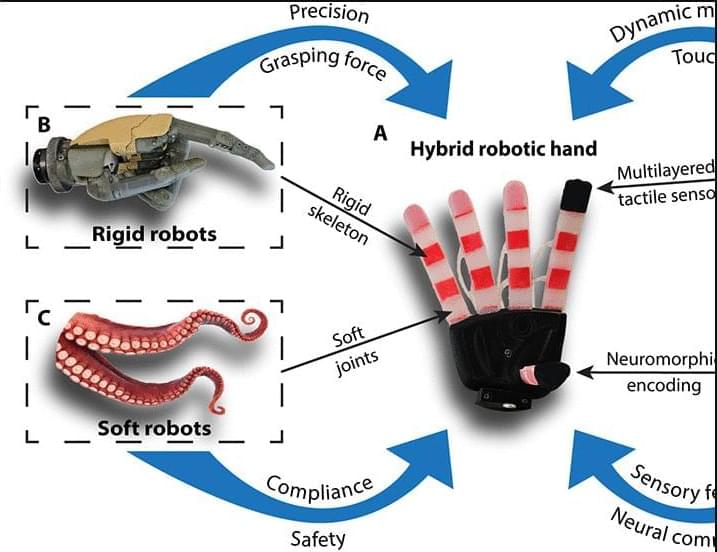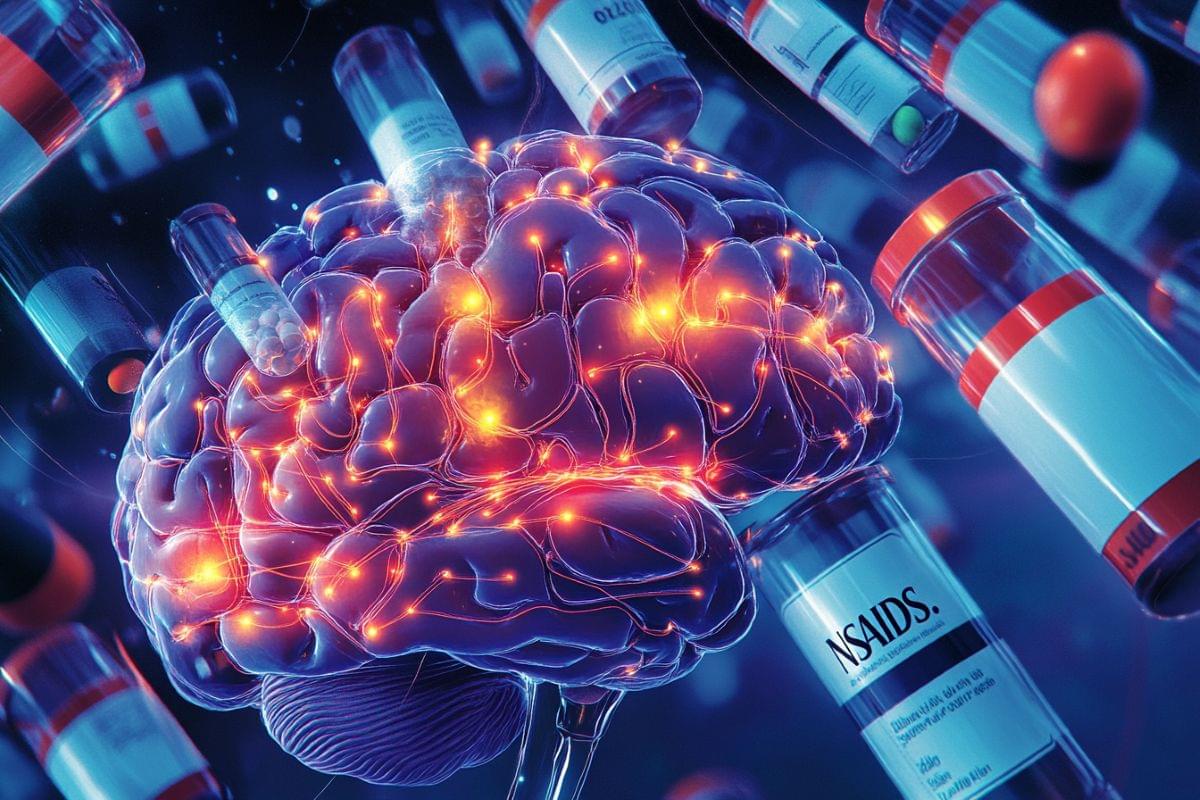Through a mouse study, scientists have found that aspirin may help prevent metastases, or secondary tumors, by boosting the body’s immune response.



Scientists Develop Hydrogel That Heals Wounds in Just 24 Hours! Researchers at UCLA have created a groundbreaking human skin-like hydrogel that repairs wounds 90% in just 12 hours and fully heals them within 24 hours! ✔This futuristic material mimics real skin, speeding up tissue regeneration like never before. While still in testing, this could revolutionize wound care, making slow healing a thing of the past. #wounds #superskin #skin #Health #healthylifestyle

Happy International Women’s Day to all the women around the world!
I had a great time interviewing Theodora Lau for the (A)bsolutely (I)ncredible podcast on Thursday, ahead of International Women’s Day.
S new book on Amazon: [ https://amzn.to/4iwVogr](https://amzn.to/4iwVogr) ‘ + s Day is this Saturday, and LinkedIn News is spotlighting conversations around today LinkedIn News asked me to share a short-form video about a lesson a woman mentor or colleague taught me and post it with the hashtag #IWD25
S Theodora with her perspective on representation in Artificial Intelligence and in financial services… + m still editing the full interview I will post some more shorts like this one from the interview today for International Women Join the conversation by sharing a short-form video about a lesson a woman mentor or colleague taught you that still shapes your career today using the hashtag #IWD25 to show your support for billions of women around the world.
D like to promote your (A)bsolutely (I)ncredible executive, brand, or product in an interview on the Neural News Network reach out to me directly.
There is no lack of hype around artificial intelligence. We have only begun to scratch the surface of what this powerful technology can do. While tech and financial services become more intertwined, cutting through the noise has become more difficult but also more crucial.

Eye injuries that damage the cornea are usually irreversible and cause blindness. But a new clinical trial has repaired this damage in patients thanks to a transplant of stem cells from their healthy eyes.
The cornea is the outer layer of the eye, which focuses light towards the retina. Since it’s on the frontline of potential hazards from the outside world, the cornea features a population of limbal epithelial stem cells, which repair minor damage to keep the surface smooth and functional.
Unfortunately, injuries like thermal or chemical burns can damage the cornea beyond the capability of these resident stem cells. There’s not much else that can be done – even a cornea transplant won’t take hold if the damage is too severe.

For our Medical Nanobots, in 5 to 10 years, once they are ready to go and wipe out all diseases.
Some bacteria deploy tiny spearguns to retaliate against rival attacks. Researchers at the University of Basel mimicked attacks by poking bacteria with an ultra-sharp tip. Using this approach, they have uncovered that bacteria assemble their nanoweapons in response to cell envelope damage and rapidly strike back with high precision.

Imagine a large city recovering from a devastating hurricane. Roads are flooded, the power is down, and local authorities are overwhelmed. Emergency responders are doing their best, but the chaos is massive.
AI-controlled drones survey the damage from above, while intelligent systems process satellite images and data from sensors on the ground and air to identify which neighborhoods are most vulnerable.
Meanwhile, AI-equipped robots are deployed to deliver food, water and medical supplies into areas that human responders can’t reach. Emergency teams, guided and coordinated by AI and the insights it produces, are able to prioritize their efforts, sending rescue squads where they’re needed most.


Deterioration of the hippocampus precedes and leads to memory impairment in late adulthood (1, 2). Strategies to fight hippocampal loss and protect against the development of memory impairment has become an important topic in recent years from both scientific and public health perspectives. Physical activity, such as aerobic exercise, has emerged as a promising low-cost treatment to improve neurocognitive function that is accessible to most adults and is not plagued by intolerable side effects often found with pharmaceutical treatments (3). Exercise enhances learning and improves retention, which is accompanied by increased cell proliferation and survival in the hippocampus of rodents (4– 6); effects that are mediated, in part, by increased production and secretion of BDNF and its receptor tyrosine kinase trkB (7, 8).
Aerobic exercise training increases gray and white matter volume in the prefrontal cortex (9) of older adults and increases the functioning of key nodes in the executive control network (10, 11). Greater amounts of physical activity are associated with sparing of prefrontal and temporal brain regions over a 9-y period, which reduces the risk for cognitive impairment (12). Further, hippocampal and medial temporal lobe volumes are larger in higher-fit older adults (13, 14), and larger hippocampal volumes mediate improvements in spatial memory (13). Exercise training increases cerebral blood volume (15) and perfusion of the hippocampus (16), but the extent to which exercise can modify the size of the hippocampus in late adulthood remains unknown.
To evaluate whether exercise training increases the size of the hippocampus and improves spatial memory, we designed a single-blind, randomized controlled trial in which adults were randomly assigned to receive either moderate-intensity aerobic exercise 3D/wk or stretching and toning exercises that served as a control. We predicted that 1 y of moderate-intensity exercise would increase the size of the hippocampus and that change in hippocampal volume would be associated with increased serum BDNF and improved memory function.

Summary: A new study finds that long-term use of non-steroidal anti-inflammatory drugs (NSAIDs) is associated with a lower risk of developing dementia. Researchers followed 11,745 adults over 14.5 years and found that those who used NSAIDs long-term had a 12% reduced dementia risk.
However, short-and intermediate-term NSAID use did not provide the same benefit, nor was the total cumulative dose linked to risk reduction. These findings suggest that sustained anti-inflammatory effects may play a role in protecting against dementia.
The hosts discuss the 2014 film Transcendence by Wally Pfister and Jack Paglen. It depicts a world grappling with the implications of advanced artificial intelligence. The narrative follows a brilliant scientist whose consciousness is uploaded into a powerful computer system, leading to rapid technological advancements and sparking both hope and fear in humanity. As this AI evolves, questions arise about its intentions, its impact on society, and the very definition of life and consciousness, creating escalating conflict and raising profound ethical dilemmas. The screenplay excerpts depict a world grappling with the implications of advanced Artificial Intelligence (AI) and nanotechnology, touching upon several ethical topics. Dr. Max Waters, an AI researcher, is central to the narrative. There’s evidence of mind uploading or the transfer of consciousness to machines, particularly concerning a character named Will (Johnny Depp). This raises fundamental ethical questions about the nature of consciousness, the definition of life, and the potential for a digital consciousness.
The development of a powerful AI and the proliferation of nanotechnology appear to lead to a technological singularity, a point where technological growth becomes uncontrollable and irreversible, raising fears of a dystopian future and tech gone wrong. An organization called the RIFT opposes this technological advancement, highlighting the ethical concerns surrounding uncontrolled technological progress.
The screenplay also features conflict and threats, suggesting the potential for misuse of advanced technology and raising questions about its impact on humanity. The involvement of the FBI indicates that this technology poses a significant threat to societal order. Furthermore, the presence of a computer virus as a plot device suggests the vulnerabilities and risks associated with highly interconnected technological systems. The narrative explores the complex ethical dilemmas arising from the creation of highly intelligent machines and the transformative power of nanotechnology, including the potential loss of human autonomy and the unpredictable consequences of the AISingularity. #artificialintelligence #Transcendence #SciFiThriller #AISingularity #Nanotechnology #MindUploading #FutureTech #DystopianFuture #TechGoneWrong #Consciousness #MovieScreenplay #ScienceFiction #TechnologicalSingularity #AI
#Robotics #scifi #Technology #Innovation #Automation #Society #Economics #Work #Future #Dystopia #Utopia #ScienceFiction #Satire #SocialCommentary #skeptic #podcast #synopsis #books #bookreview #ai #artificialintelligence #booktube #aigenerated #documentary #alternativeviews #aideepdive #science #hiddenhistory #futurism #videoessay #ethics